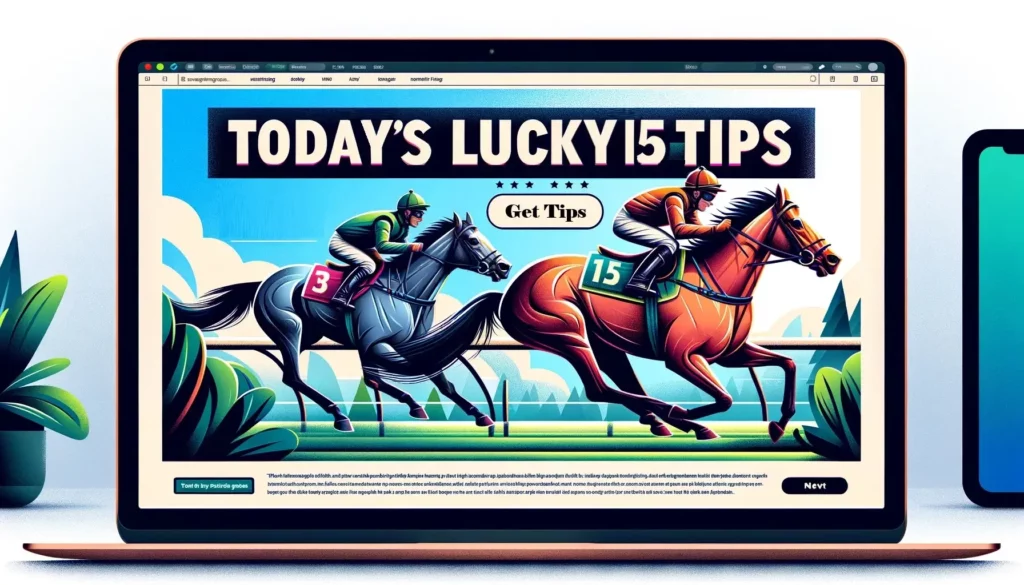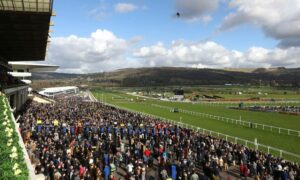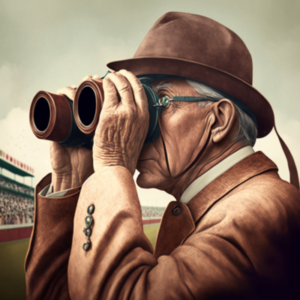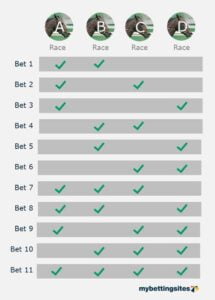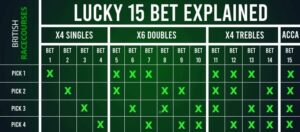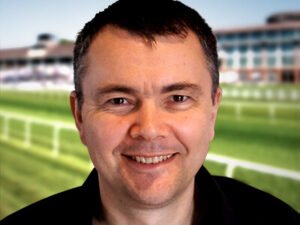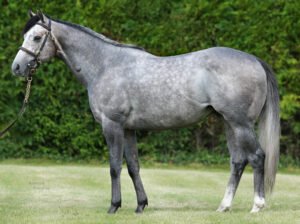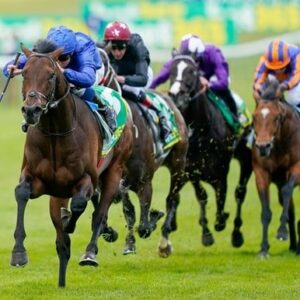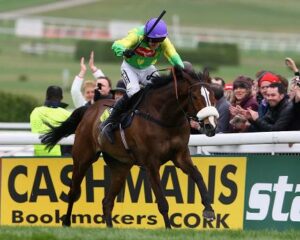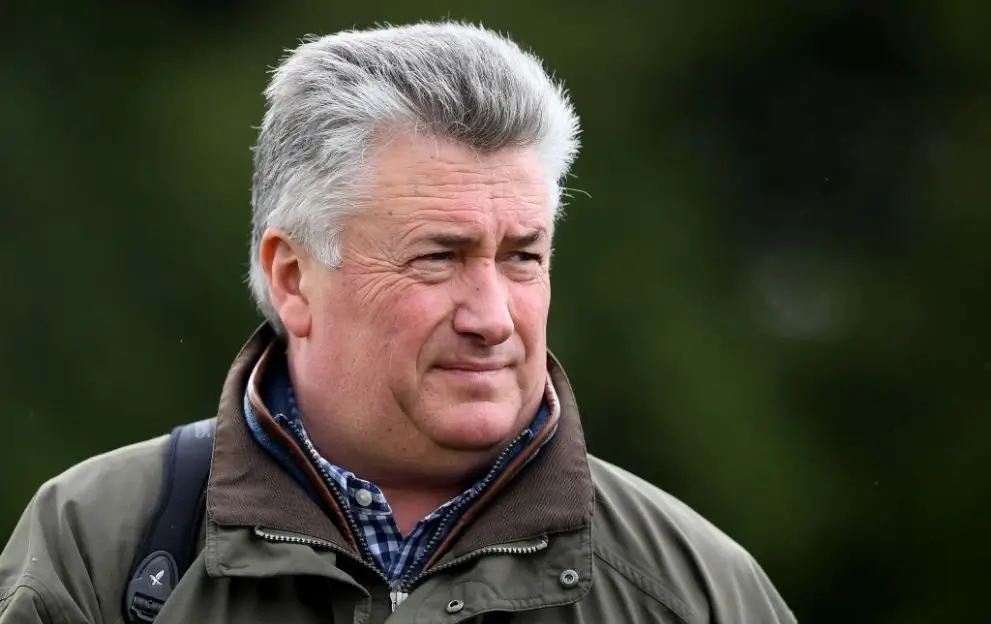
Paul Nicholls: Britain's Most Successful National Hunt Trainer of the 21 Century
Welcome to the Racing Experts profile for Paul Nicholls, the hugely successful National Hunt trainer, based in Ditcheat, Somerset.
Early Life and Introduction to Horse Racing
Paul Nicholls, a celebrated name in the world of National Hunt racing, embarked on his journey in the quiet village of Olveston, near Bristol. Born on April 17, 1962, Nicholls grew up with an innate passion for horses, a trait that would define his future. His early exposure to the equestrian world was not just through his family’s deep-rooted interest in horse racing, but also through his participation in pony clubs and hunting, which honed his riding skills from a young age.
Nicholls’ affinity for horse racing was evident early on, as he frequented local races, nurturing a growing fascination with the sport. His formative years were spent absorbing the nuances of horse racing, laying a solid foundation for his future career. Driven by a strong determination and a love for horses, Nicholls made his first foray into the racing world as a jockey. This initial step into the sport provided him with invaluable insights and experiences, shaping his understanding of horse training and racing dynamics.
The transition from a young horse enthusiast to a professional jockey marked the beginning of what would be an illustrious career in horse racing. Nicholls’ early experiences as a jockey were crucial in developing the skills and knowledge that he would later apply in his training career, setting the stage for his future successes in National Hunt racing.
Paul Nicholls as a Jockey: The Formative Years
Paul Nicholls’ foray into the world of horse racing took a significant turn when he embarked on his career as a jockey. These formative years were not just a period of professional growth but also a time when Nicholls’ profound understanding and connection with horses deepened. His journey as a jockey was marked by dedication, resilience, and a learning curve that set the foundation for his future successes as a trainer.
Throughout his jockey career, Nicholls was known for his keen riding skills, a deep understanding of race strategy, and an ability to connect with his mounts in a way that brought out their best on the racetrack. These qualities earned him respect in the racing community and provided him with invaluable insights into the nuances of National Hunt racing. Nicholls’ time as a jockey was instrumental in developing his training philosophy, as he gained first-hand experience of what it takes to succeed in the demanding world of horse racing.
While Nicholls’ stint as a jockey may not have been studded with high-profile victories, it was a crucial era that shaped his approach to training. He learned the importance of patience, horse welfare, and the subtle art of bringing out a horse’s potential. These lessons, learned on the tracks and in the stables, were pivotal in his transition from jockey to trainer. Nicholls’ career as a jockey, though a lesser-known chapter of his life, was an essential stepping stone that led him to become one of the most successful trainers in National Hunt racing history.
Beginning of Paul Nicholls’ Training Career
Paul Nicholls’ transition from jockey to trainer marked the beginning of an era that would reshape National Hunt racing. Nicholls started his training career with a small yard in Ditcheat, Somerset, a move that would soon prove to be a turning point in his life and in the history of horse racing. His early years as a trainer were characterized by an unwavering commitment to excellence and a keen ability to identify and nurture equine talent.
Within the first five years, Nicholls demonstrated his extraordinary skill as a trainer. He quickly began making his mark with notable horses that would lay the foundation for his future success. Among these early standouts were See More Business and Call Equiname, both of whom would go on to achieve great success under Nicholls’ guidance. See More Business captured victories in prestigious races, including the King George VI Chase, while Call Equiname secured a win in the Queen Mother Champion Chase, announcing Nicholls’ arrival on the big stage of National Hunt racing.
These early successes were a clear indication of Nicholls’ potential to become one of the sport’s greats. His approach to training, marked by a meticulous attention to detail and a deep understanding of each horse’s individual needs, set him apart from his contemporaries. This period was not just about winning races; it was about laying the groundwork for a training philosophy that would yield unprecedented success and establish Nicholls as a dominant force in horse racing.
Rise to Prominence in National Hunt Racing
Paul Nicholls’ ascent in the world of National Hunt racing was both rapid and remarkable. Within a few years of beginning his training career, Nicholls was already establishing himself as a force to be reckoned with in the racing community. His innate understanding of horses, combined with innovative training methods, began to bear fruit in some of the most prestigious races in the circuit.
The turning point in Nicholls’ career came with a series of high-profile victories that catapulted him into the limelight. His horses started to dominate major National Hunt events, showcasing Nicholls’ exceptional training abilities. Among the early signs of his growing dominance was the success of See More Business, who clinched the King George VI Chase, solidifying Nicholls’ reputation as a top-class trainer. Another significant achievement was guiding Call Equiname to victory in the Queen Mother Champion Chase, a testament to his skill in preparing horses for the biggest stages.
Nicholls’ yard at Ditcheat became synonymous with excellence, attracting top talent and producing racehorses that consistently performed at the highest level. His ability to prepare his horses meticulously for key races earned him numerous accolades and a growing following among racing enthusiasts. Nicholls was not just winning races; he was setting new standards in the National Hunt racing arena.
By the early 2000s, Nicholls had firmly established himself as one of the leading National Hunt trainers in the UK. His success was not limited to individual races; he was consistently producing horses that performed exceptionally across the National Hunt calendar. This period marked the rise of a training legend, as Nicholls’ methods and strategies redefined what was possible in the sport, paving the way for a legacy that would influence National Hunt racing for years to come.
Paul Nicholls’ Dynasty of Champion Horses
Throughout his illustrious career, Paul Nicholls has trained a dynasty of champion horses, each leaving an indelible mark on the National Hunt racing scene. These equine athletes not only garnered significant victories but also amassed impressive career prize money, solidifying Nicholls’ status as one of the top trainers in horse racing history.
Kauto Star, undoubtedly the jewel in Nicholls’ crown, had a career that spanned over eight years, earning over £3.7 million in prize money. Kauto Star’s remarkable achievements include winning the Cheltenham Gold Cup twice (2007 and 2009) and the King George VI Chase a record five times.
Denman, known as ‘The Tank’, amassed over £1.1 million during his career. His most notable victory was in the 2008 Cheltenham Gold Cup, a race that showcased his incredible stamina and strength. Denman’s rivalry with stablemate Kauto Star captured the public’s imagination and is remembered as one of the great racing duels.
Big Buck’s, the dominant force in the staying hurdle division, won an impressive 18 consecutive races, including four Cheltenham Festival Stayers’ Hurdle victories. His career earnings exceeded £1.3 million, a testament to his consistency and Nicholls’ skill in maintaining top form.
Master Minded excelled in two-mile chases, winning the Queen Mother Champion Chase twice and earning over £1 million. His breathtaking speed and agility made him a formidable competitor in every race he entered.
Clan Des Obeaux, another star in Nicholls’ stable, has multiple King George VI Chase victories to his name, showcasing the trainer’s continued dominance in one of the most prestigious races in the National Hunt calendar.
These horses, along with others like Neptune Collonges, Frodon, and Cyrname, represent the pinnacle of Nicholls’ training career. Each horse’s success story is a chapter in Nicholls’ legacy, highlighting his exceptional ability to train a diverse range of horses to win at the highest level of National Hunt racing.
Kauto Star: A Special Focus
Born at the esteemed French stud, Haras de la Bergerie, the legendary Kauto Star was sired by Village Star and out of the dam Kauto Relka.
The chaser’s early years, beginning with his birth on March 19, 2000, set the stage for a remarkable career that would see him become one of the most celebrated names in National Hunt racing under the tutelage of Paul Nicholls.
Debuting in France, the future star soon made his way to Nicholls’ yard, quickly becoming a centerpiece in a dynasty of racing greats. Owned by Clive Smith, the gelding’s career was highlighted by an intense rivalry with stablemate Denman, a narrative that captivated the racing world. Their duels, particularly in the Cheltenham Gold Cup, epitomised the sport’s drama and competitive spirit.
Kauto Star’s return to the Gold Cup’s winner’s enclosure in 2009, regaining the title from Denman, was a testament to his exceptional ability and resilience. This victory marked him as the first horse to regain the Gold Cup, a feat that showcased his class, high cruising speed, and precise jumping prowess. His versatility over distances ranging from 2 miles to 3 miles and 2 furlongs was unmatched, often leaving rivals struggling to keep pace.
The gelding’s remarkable attributes extended beyond his physical capabilities. Kauto Star possessed a demeanor that resonated with racing enthusiasts, making him a fan favorite. His effortless elegance, combined with a devastating ability over jumps, ensured that he remained a dominant force over both short and long distances.
Retiring in 2012, the legacy of Kauto Star, affectionately dubbed “King Kauto“, transcended the sport. His memory, cherished by Nicholls, Walsh, and the wider racing community, remains emblematic of National Hunt excellence.
Tragically, Kauto Star passed away in 2015 after a paddock fall. But his legacy as a symbol of equine brilliance and his contribution to Nicholls’ career endures in the annals of horse racing history.
Nicholls’ Training Philosophy and Methodology
At the heart of Paul Nicholls’ unprecedented success in National Hunt racing is his state-of-the-art training yard in Ditcheat, Somerset. This facility, a harmonious blend of tradition and modernity, has been the crucible where many racing legends were forged. Nicholls’ innovative approach to training, combining fitness and conditioning with tactical schooling, has set new standards in the sport.
The yard in Ditcheat is not just a training ground; it’s a testament to Nicholls’ philosophy of horse training. Central to this is the famed hill gallop, a demanding stretch that has been instrumental in building the stamina and resilience of his horses. This rigorous conditioning work, combined with speed training on the newer flat gallop, ensures that each horse reaches peak fitness and agility. Nicholls’ attention to detail extends to every aspect of training, from meticulous schooling to fine-tuning tactics ahead of races.
Integral to the birth and success of Britain’s most successful jumps yard of the 21st century was Nicholls’ relationship with the late Paul Barber, his landlord and a passionate racing enthusiast. Barber’s enthusiasm for the sport, coupled with his willingness to invest in the best facilities and horses, provided Nicholls with the resources to build a world-class training operation. This partnership was foundational in establishing Ditcheat as a premier training yard, synonymous with excellence and success.
Under Nicholls’ guidance, Ditcheat has become more than a training facility; it is a symbol of the evolution of horse training. His methods, blending traditional practices with innovative techniques, have redefined what it means to prepare a racehorse. The success stories that have emerged from Ditcheat are a testament to Nicholls’ skill, vision, and dedication to the sport of horse racing.
Personal Life: Marriage and Family
Outside the racetrack, Paul Nicholls leads a fulfilling personal life, centered around his family. Nicholls, a devoted family man, balances his demanding career with his role as a husband and father. He has four children and has been married three times. His children including his daughter Megan, born in 1997, who has followed in her father’s footsteps in the world of horse racing.
Megan Nicholls has carved out her own path in the racing industry, initially making her mark as a jockey. Her career in the saddle saw her achieve notable successes, showcasing a natural talent and passion for the sport that she inherited from her father. Megan’s transition from racing to television has been seamless. She now works as a pundit, sharing her insights and expertise with a wider audience, and continues to be a rising star in the world of horse racing media.
The Nicholls family’s deep connection to horse racing is a testament to Paul’s influence, both as a father and as a figure in the sport. His personal life, much like his professional one, is marked by dedication and success.
Achievements and Accolades
Paul Nicholls, a titan in National Hunt racing, has an illustrious record of major wins that underscore his mastery as a trainer. His success at the Cheltenham Festival and other prestigious races across the UK and Ireland, as well as notable victories in France, have cemented his reputation as one of the sport’s greats.
Cheltenham Winners (48)
- Cheltenham Gold Cup – (4) See More Business (1999), Kauto Star (2007, 2009), Denman (2008)
- Queen Mother Champion Chase – (6) Call Equiname (1999), Azertyuiop (2004), Master Minded (2008, 2009), Dodging Bullets (2015), Politologue (2020)
- Stayers’ Hurdle – (4) Big Buck’s (2009, 2010, 2011, 2012)
- Champion Hurdle – (1) Rock On Ruby (2012)
Major Wins in the United Kingdom and Republic of Ireland
- Grand National – (1) Neptune Collonges (2012)
- King George VI Chase – (13) See More Business (1997, 1999), Kauto Star (2006, 2007, 2008, 2009, 2011), Silviniaco Conti (2013, 2014), Clan Des Obeaux (2018, 2019), Frodon (2020), Bravemansgame (2022)
- Tingle Creek Chase – (12) Flagship Uberalles (1999), Cenkos (2002), Kauto Star (2005, 2006), Twist Magic (2007, 2009), Master Minded (2008, 2010), Dodging Bullets (2014), Politologue (2017, 2020), Greaneteen (2021)
Major Wins in France
- Grande Course de Haies d’Auteuil – (1) Ptit Zig (2016)
- Prix Renaud du Vivier – (1) Ptit Zig (2013)
- Grand Prix d’Automne – (1) Zarkandar (2014)
This extensive list of victories is a testament to Nicholls’ profound impact on the world of horse racing, with each win further solidifying his legacy as one of the greatest National Hunt trainers of all time.
Legacy and Future Prospects
In recent times, Paul Nicholls has continued to demonstrate his exceptional training prowess, showcasing a new generation of equine talent. His yard remains a powerhouse in National Hunt racing, consistently producing top-quality horses that compete and triumph at the highest levels. Recent stars from Nicholls’ stable, such as Bravemansgame and Frodon, are testaments to his enduring ability to identify and develop champion racehorses.
A significant aspect of Nicholls’ illustrious career has been his longstanding rivalry with fellow trainer Nicky Henderson. This friendly yet intense competition has been a driving force in National Hunt racing for over two decades. Both trainers have pushed each other to new heights, constantly raising the bar and bringing out the best in each other. Their rivalry has not only enhanced their respective careers but has also greatly contributed to the overall excitement and quality of National Hunt racing.
As Nicholls continues to forge ahead, his legacy in horse racing is firmly established. His impact on the sport is undeniable, and his future prospects remain as bright as ever. With a yard full of promising talent and a career marked by remarkable achievements, Nicholls is poised to continue his reign as one of the most successful trainers in the history of National Hunt racing.

